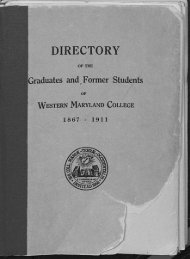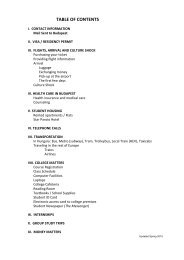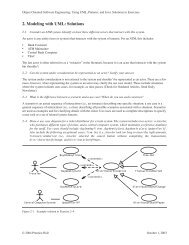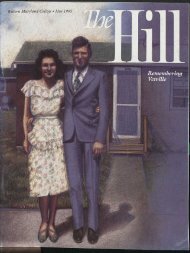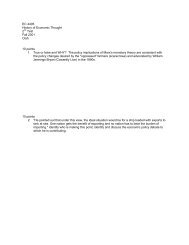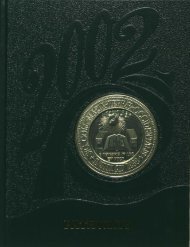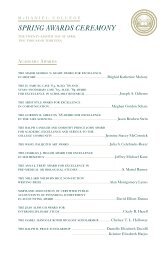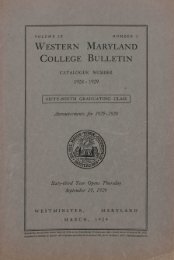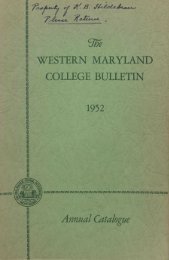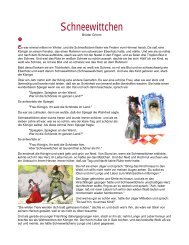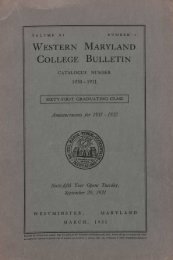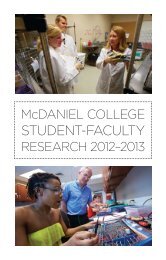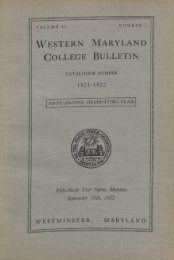I".,"".'""""~ silentlv.unnoticej'~,signs were little ones, seemingly unconnected. Sud.denly the number of books published began to soar.That year Congress established a National ScienceFoundation to promote scientific progress througheducation and basic research. CoUege enrollments,swollen by returned war veterans with G.!. Billbenefits, refused to return to "normal"; instead, theybegan to rise sharply. Industry began to expand itsresearch facilities significantly, raiding the collegesand graduate schools for brainy talent. Facultysalaries, at their lowest since the 1930's in terms ofreal income, began to inch up at the leading colleges.China, the most populous nation in the world,fell to the Communists, only a short time after severalEastern European nations were seized by Communistcoups d'etat; and, aided by support fromseveral philanthropic foundations, there was a rushto study Communism, military problems andweapons, the Orient, and underdeveloped countries.Now, 15 years later, we have begun to comprehendwhat started then. The United States, lockedin a Cold War that may drag on for half a century,has entered a new era of rapid and unrelentingchange. The nation continues to enjoy many of thebenefits of peace, but it is forced to adopt much ofthe urgency and pressure of wartime. To meet thebold challenges from outside, Americans have hadto transform many of their nation's habits and institutions.The biggest change has been in the rate of changeitself.Life has always changed. But never in the historyof the world has it changed with such rapidity as itdoes now. Scientist ]. Robert Oppenheimer recentlyobserved: "One thing that is new is the prevalence ofnewness, the changing scale and scope of change itself,so that the world alters as we walk in it, so thatthe years of a man's life measure not some smallgrowth or rearrangement or modification of what helearned in childhood, but a great upheaval."Psychiatrist Erik Erikson has put it thus: "Today,men over 50 owe their identity as individu.als, as citizens, and as professional workers to aperiod when change had a different quality andToday's colleges and universities:when a dominant view of the world was one. ofa one-way extension into a future of proS':~lt:~progress, and reason. If they rebelled, they 1 1 , foragainst details of this finn trend and often onfi~rnerthe sake of what they thought were e:cl1 chalones.They learned to res~ond to the pe~iOd iC the inlengeof war and revolution by reasserting ang edterrupted trend toward normalcy. \Vhat has ch fin the meantime is, above all, the character 0chan~e itself." .' 'kel toThis new pace of Change, which rs not 11 c~ ofslow ~own .soon, has begun to affect every f~~ eakAmencan !tfe. In OUI'vocabulary, people nOV. ;.Pan dof being "on the move," of "running aroul~d, ingof "go, go, go." In Our politics, we arc Wltr: tora major realignment of the two-party syst~01. ,.~~ostMax Ways of Fortune magazine has said,. outAmerican political and social issues today al'lse "of a concern OVer the pace and quality of cl~~:~~In Our morality, many are becoming more think?r U?committed. If life changes swiftly, man~o anYIt Wise not to get too attached or devotedparticular set of beliefs or hierarchy of values.
usy faculties, senousstudents, and hard coursesOf all American institutions, that which is mostprofoundly affected by the new tempo of radicalchange is the school. And, although all levels ofschooling are feeling the pressure to change, thoseprobably feeling it the most are our colleges anduniversities.ATTHE HEART of America's shift to a newlife of constant change is a revolution in the roleand nature of higher education. Increasingly, all ofus live in a society shaped by our colleges anduniversities.From the campuses has come the expertise totravel to the moon, to crack the genetic code, andto develop computers that calculate as fast as light.From the campuses has come new informationabout Africa's resources, Latin-American economics,and Oriental politics. In the past 15 years, collegeand university scholars have produced a dozenor more accurate translations of the Bible, morethan were produced in the past 15 centuries. Universityresearchers have helped virtually to wipeout three of the nation's worst diseases: malaria,tuberculosis, and polio. The chief work in art andmusic, outside of a few large cities, is now beingdone in our colleges and universities. And profoundconcern for the U.S. racial situation, for U.S. foreignpolicy, for the problems of increasing urbanism,and for new religious forms is now being expressedby students and professors inside the academicsof higher learning.As American colleges and universi Lieshave beeninstrumental in creating a new world of whirlwindchange, so have they themselves been subjected tounprecedented pressures to change. They are differentplaces from what they were 15 years ago-insome cases almost unrecognizably different. Thefaculties are busier, the students more serious, andthe courses harder. The campuses gleam with newbuildings. While the shady-grove and paneledlibrarycolleges used to spend nearly all of theirtime teaching the young, they have now beenburdened with an array of new duties.Clark Kerr, president of the University of California,has put the new situation succinctly: "Theuniversity has become a prime instrument of nationa.lpurpose. This is new. This is the essence ofthe transformation now engulfing our universities."The colleges have always assisted the nationalpurpose by helping to produce better clergymen,farmers, lawyers, businessmen, doctors, and teachers.Through athletics, through religious and moralguidance, and through fairly demanding academicwork, particularly in history and literature, thecolleges have helped to keep a sizable portion ofthe men who have ruled America rugged, reason.ably upright and public-spirited, and informed andsensible. The problem of an effete, selfish, or ignorantupper class that plagues certain other nationshas largely been avoided in the United States.But never before have the colleges and universitiesbeen expected to fulfill so many dreams and projectsof the American people. Will we outdistance theRussians in the space race? It depends on the caliber
- Page 1 and 2:
~~STERN MARYLAND COLLEGE I ~~o/ht~W
- Page 3 and 4:
TheWESTERN MARYLAND COLLEGEMagazine
- Page 5 and 6:
A Gift forthe CollegeCollectionBalt
- Page 7 and 8: meat aU choice cuts. From this poin
- Page 9 and 10: .'30to 40 miles for clinics on the
- Page 11 and 12: PAINT POSTSTHE CATALYSTPledges of G
- Page 13 and 14: On the Hit!New TrusteeArthur G. Bro
- Page 15 and 16: Hopkins TakesLast GameBasketball te
- Page 17 and 18: 19"Mrs. Otto Dieffenbach(Madeleine
- Page 19 and 20: Wayne Crackel! works for the YMCA i
- Page 22 and 23: The President's ColumnTribute toMan
- Page 24 and 25: Communication is many things; telep
- Page 26: period of old age, it might be cons
- Page 29 and 30: -- •Pagenine
- Page 31 and 32: Art is long they sayAnd the time is
- Page 33 and 34: Members of the Fund Committee meet
- Page 35 and 36: SPORTSClower's TearnHas TroubleUnli
- Page 37 and 38: During a recent dinner party at Car
- Page 39 and 40: SUpport equipment engineering divis
- Page 41 and 42: infant in March, 1964. She is also
- Page 43 and 44: portunity tool) StanleyHowell an El
- Page 45: cral science and biology.Thank you
- Page 48 and 49: Dasuet McCready, president of the W
- Page 50 and 51: The bridge is a symbol in literatur
- Page 52 and 53: Thi.s i.s one of th.e chemistry lab
- Page 54 and 55: Moberly wrote, "An honest intention
- Page 56 and 57: all sorts of odd jobs such as peddl
- Page 61 and 62: of scientists and engineers that ou
- Page 63 and 64: y, but 15 years ago there were roug
- Page 65 and 66: problems, and to international conf
- Page 67 and 68: DRA WINGS BY ARNO STERNGLASSconsequ
- Page 69 and 70: The students reactto "the system" w
- Page 71 and 72: The alumnilament: We don't Tecogniz
- Page 73 and 74: William S. Coffin, Jr.Campus Respon
- Page 75 and 76: SPORTSTERROR NINEIS DIFFERENTCoach
- Page 77 and 78: serving as interim Pastor of a smal
- Page 79 and 80: travel. The next newsletter will te
- Page 81 and 82: this summer. \Vhile there, they wil
- Page 83 and 84: The MagazineServiceCommencementCrec
- Page 85 and 86: TheWESTERN MARYLAND COLLEGEMagazine
- Page 87 and 88: Sally Reinecke chats with students
- Page 89 and 90: Thie is the Trapper Creek Job Corps
- Page 91 and 92: BOLIVIAPIONEER(S)by Joy Holloway, '
- Page 93 and 94: Joy says "Welcomethe right.to San P
- Page 95 and 96: '/'his article, printed in the May
- Page 97 and 98: June 6, 1966, Commencementpage-fift
- Page 99 and 100: DepartmentsGive HonorsTwenty-one me
- Page 101 and 102: y David Carrasco, '67RAIN HINDERSTE
- Page 103 and 104: ~~h:~~;~1i~~~lf. ft~l~~b/:~:~~:~n (
- Page 105 and 106: Nova Scotia, Gaspe Peninsula and Qu
- Page 107 and 108: Maryland National Guard's "Dandy Fi
- Page 109 and 110:
Family Living at North Hagerstown H
- Page 111 and 112:
the birth of their first child, Kei
- Page 113:
Andy was bam in the morning on the
- Page 117 and 118:
TheWESTERN MARYLAND COLLEGEMagazine
- Page 119:
AlumniFund Breaks RecordThis succes
- Page 122 and 123:
-,Martha O. VincentPaul F. W!L"'~r'
- Page 124 and 125:
11133-$997.00·"Webster M. Stray~rF
- Page 126 and 127:
*~~\~~:1}a{:~i~b1f5!~i~!;~~71~~Dryd
- Page 128 and 129:
1953-$804.45Ebie !l-laytrott Greenh
- Page 130 and 131:
·CornerstonepagesixteenOGCentutyCl
- Page 132 and 133:
·.\Iara Dil.on WalterSylvia A. Whi
- Page 135 and 136:
WESTERN MARYLAND COLLEGEOctober, 19
- Page 137 and 138:
TheWESTERN MARYLAND COLLEGEMagazine
- Page 139 and 140:
Introduction: the editorUNREST ON C
- Page 141 and 142:
form of prejudice involved in all s
- Page 143 and 144:
the adjustments toward college life
- Page 145 and 146:
To Catcha Fish byD,,;dLC.rrasco,'67
- Page 147 and 148:
"WMC Curriculum: Overstructured and
- Page 149 and 150:
New Look for Religious Organization
- Page 151 and 152:
vocational requirements in preparat
- Page 153 and 154:
SPORTSSidelineWoreby David Carrasco
- Page 155 and 156:
seeLos Angeles for part of the summ
- Page 157 and 158:
John Z. Dlsh, 28 Westmoreland Stree
- Page 159 and 160:
college president). Bill and his wi
- Page 161 and 162:
(that's what she wrote!), Clair/! M
- Page 163 and 164:
Harry has been a member of the Boar
- Page 165 and 166:
call as he would be happy to share
- Page 167 and 168:
is serving a 12-month tour with the
- Page 169:
MAY DAY 1966



